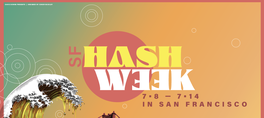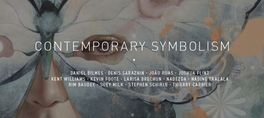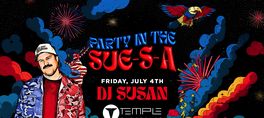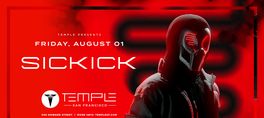Nicholson Baker's The Anthologist was a New York Times Notable Book of the Year, a Los Angeles Times Favorite Fiction pick, and a “Year’s Reading” Favorite in The New Yorker. Simon Schama called its hero “one of the most concretely realized voices in modern American fiction.” Baker’s irrepressible, unforgettable poet protagonist Paul Chowder, who first appeared in The Anthologist, makes a welcome return in Baker’s new novel, Traveling Sprinkler.
Baker’s beguilingly feckless hero finds himself staring down his fifty-fifth birthday, which he suspects “may be one of the empty-bed birthdays,” as his former girlfriend Roz has now taken up with a very articulate doctor who fancies himself a sort of Oliver Sacks. Isn’t he kind of a needless encumbrance? Paul asks Roz. While still hopeful he’ll win Roz back, he confesses that he wants romance in his life (“that little jingly bell in front of the word ‘friend’: girlfriend”). This leads to an evening out with a Match.com date that goes off-track when over dinner Paul is inexplicably moved to say critical things about one of the world’s greatest artists: “I’m a rogue mastodon who dismisses Picasso with an annoying wave of his trunk.”
Paul decides he wants to be “starting out” with something, to “amass ragged armfuls of lucid confusion that make you keel over.” He has decided to set aside his poetry for songwriting. Drawing on his classical training on the bassoon (“a brown snorkel that pokes up at an angle above the orchestra”), he buys an acoustic guitar so that he can learn to write pop songs -- maybe protest songs, dance songs, love songs. Tracy Chapman’s “Change” may be the greatest protest song ever written, Paul decides, partly because it’s not protesting anything by name. “It asks these questions and prompts you to try to answer them, just as the Quakers ask questions.” He muses on the glories of stereo recording (“The human ear had figured out something many eons ago”), on chord progressions (“Out of the shuffling mess of dissonance comes a return to pax”), on Stravinsky’s The Rite of Spring (“an act of ambitious aggression, a mockery of chromaticism”), and on his favorite piece of music, Debussy’s tenth piano prelude, “Sunken Cathedral” (“The piece was Debussy saying goodbye to everything . . . all sunken frightening beautiful artful ruined human things”).
As he grapples with the tricks and intricacies of songwriting, Paul ponders what to write about (“Is it possible to write a song about the beginnings of the CIA?”), and listens to a dizzyingly wide range of music. Meanwhile, his attention wanders in entertaining and eccentric directions, and draws on what the critic Sam Anderson has called Baker’s “Dutch-painterly reverence for everyday rituals and objects.” There are his forays with tobacco (a new “tongue-loosening addiction . . . strong and full of brown tuneful certainty”); his fondness for dappled shade; and his thankful appreciation of the moon when it’s “swimming in the deep end of the sky.” To match his enthusiasms, there are serious concerns too, such as his growing anguish over killer drones. “Drones on autopilot are not inevitable,” he says.
Paul wants to do better with his life, and he admits to feeling like “a traveling sprinkler that’s gotten off the hose.” It helps that Roz is never too far out of range; by the end of the novel, Paul draws her even closer.
Welcoming the reader into Paul Chowder’s life and what’s jostling around in his head, Traveling Sprinkler is at once intimate, endearing, and utterly original, filled with what Baker once called “the tiny inciting incidents” of life which, as he sees it, address the big question any novel is really trying to answer—Is life worth living? It’s ultimately a love story for grown-ups, about two people rediscovering each other.
Nicholson Baker’s first novel, The Mezzanine, was about a man riding an escalator. His second, Room Temperature, was about a man feeding a bottle to his baby. In his many other works of fiction and nonfiction, he has written about John Updike, about getting up early in the morning, about the inner life of a nine-year-old girl, about the beginnings of the Second World War, and about sex. His earnings from the sex novels Vox (his first bestseller), and The Fermata allowed him to found a non-profit corporation, the American Newspaper Repository, to save a collection of rare American newspapers from being destroyed by libraries once the paper originals had been converted to microfilm. He wrote about that experience in the book Double Fold, winner of a National Book Critics Circle Award. His work has appeared in The New Yorker, Harper's, The New York Review of Books, Best American Short Stories, and Best American Essays.
Come early to hear "Paul Chowder's" songs! (Listen to three of them now:
https://soundcloud.com/blueriderpress/amazing-magnet-nicholson-baker
https://soundcloud.com/blueriderpress/doctor-song-nicholson-baker
https://soundcloud.com/blueriderpress/right-of-the-people-nicholson
show less
Baker’s beguilingly feckless hero finds himself staring down his fifty-fifth birthday, which he suspects “may be one of the empty-bed birthdays,” as his former girlfriend Roz has now taken up with a very articulate doctor who fancies himself a sort of Oliver Sacks. Isn’t he kind of a needless encumbrance? Paul asks Roz. While still hopeful he’ll win Roz back, he confesses that he wants romance in his life (“that little jingly bell in front of the word ‘friend’: girlfriend”). This leads to an evening out with a Match.com date that goes off-track when over dinner Paul is inexplicably moved to say critical things about one of the world’s greatest artists: “I’m a rogue mastodon who dismisses Picasso with an annoying wave of his trunk.”
Paul decides he wants to be “starting out” with something, to “amass ragged armfuls of lucid confusion that make you keel over.” He has decided to set aside his poetry for songwriting. Drawing on his classical training on the bassoon (“a brown snorkel that pokes up at an angle above the orchestra”), he buys an acoustic guitar so that he can learn to write pop songs -- maybe protest songs, dance songs, love songs. Tracy Chapman’s “Change” may be the greatest protest song ever written, Paul decides, partly because it’s not protesting anything by name. “It asks these questions and prompts you to try to answer them, just as the Quakers ask questions.” He muses on the glories of stereo recording (“The human ear had figured out something many eons ago”), on chord progressions (“Out of the shuffling mess of dissonance comes a return to pax”), on Stravinsky’s The Rite of Spring (“an act of ambitious aggression, a mockery of chromaticism”), and on his favorite piece of music, Debussy’s tenth piano prelude, “Sunken Cathedral” (“The piece was Debussy saying goodbye to everything . . . all sunken frightening beautiful artful ruined human things”).
As he grapples with the tricks and intricacies of songwriting, Paul ponders what to write about (“Is it possible to write a song about the beginnings of the CIA?”), and listens to a dizzyingly wide range of music. Meanwhile, his attention wanders in entertaining and eccentric directions, and draws on what the critic Sam Anderson has called Baker’s “Dutch-painterly reverence for everyday rituals and objects.” There are his forays with tobacco (a new “tongue-loosening addiction . . . strong and full of brown tuneful certainty”); his fondness for dappled shade; and his thankful appreciation of the moon when it’s “swimming in the deep end of the sky.” To match his enthusiasms, there are serious concerns too, such as his growing anguish over killer drones. “Drones on autopilot are not inevitable,” he says.
Paul wants to do better with his life, and he admits to feeling like “a traveling sprinkler that’s gotten off the hose.” It helps that Roz is never too far out of range; by the end of the novel, Paul draws her even closer.
Welcoming the reader into Paul Chowder’s life and what’s jostling around in his head, Traveling Sprinkler is at once intimate, endearing, and utterly original, filled with what Baker once called “the tiny inciting incidents” of life which, as he sees it, address the big question any novel is really trying to answer—Is life worth living? It’s ultimately a love story for grown-ups, about two people rediscovering each other.
Nicholson Baker’s first novel, The Mezzanine, was about a man riding an escalator. His second, Room Temperature, was about a man feeding a bottle to his baby. In his many other works of fiction and nonfiction, he has written about John Updike, about getting up early in the morning, about the inner life of a nine-year-old girl, about the beginnings of the Second World War, and about sex. His earnings from the sex novels Vox (his first bestseller), and The Fermata allowed him to found a non-profit corporation, the American Newspaper Repository, to save a collection of rare American newspapers from being destroyed by libraries once the paper originals had been converted to microfilm. He wrote about that experience in the book Double Fold, winner of a National Book Critics Circle Award. His work has appeared in The New Yorker, Harper's, The New York Review of Books, Best American Short Stories, and Best American Essays.
Come early to hear "Paul Chowder's" songs! (Listen to three of them now:
https://soundcloud.com/blueriderpress/amazing-magnet-nicholson-baker
https://soundcloud.com/blueriderpress/doctor-song-nicholson-baker
https://soundcloud.com/blueriderpress/right-of-the-people-nicholson
Nicholson Baker's The Anthologist was a New York Times Notable Book of the Year, a Los Angeles Times Favorite Fiction pick, and a “Year’s Reading” Favorite in The New Yorker. Simon Schama called its hero “one of the most concretely realized voices in modern American fiction.” Baker’s irrepressible, unforgettable poet protagonist Paul Chowder, who first appeared in The Anthologist, makes a welcome return in Baker’s new novel, Traveling Sprinkler.
Baker’s beguilingly feckless hero finds himself staring down his fifty-fifth birthday, which he suspects “may be one of the empty-bed birthdays,” as his former girlfriend Roz has now taken up with a very articulate doctor who fancies himself a sort of Oliver Sacks. Isn’t he kind of a needless encumbrance? Paul asks Roz. While still hopeful he’ll win Roz back, he confesses that he wants romance in his life (“that little jingly bell in front of the word ‘friend’: girlfriend”). This leads to an evening out with a Match.com date that goes off-track when over dinner Paul is inexplicably moved to say critical things about one of the world’s greatest artists: “I’m a rogue mastodon who dismisses Picasso with an annoying wave of his trunk.”
Paul decides he wants to be “starting out” with something, to “amass ragged armfuls of lucid confusion that make you keel over.” He has decided to set aside his poetry for songwriting. Drawing on his classical training on the bassoon (“a brown snorkel that pokes up at an angle above the orchestra”), he buys an acoustic guitar so that he can learn to write pop songs -- maybe protest songs, dance songs, love songs. Tracy Chapman’s “Change” may be the greatest protest song ever written, Paul decides, partly because it’s not protesting anything by name. “It asks these questions and prompts you to try to answer them, just as the Quakers ask questions.” He muses on the glories of stereo recording (“The human ear had figured out something many eons ago”), on chord progressions (“Out of the shuffling mess of dissonance comes a return to pax”), on Stravinsky’s The Rite of Spring (“an act of ambitious aggression, a mockery of chromaticism”), and on his favorite piece of music, Debussy’s tenth piano prelude, “Sunken Cathedral” (“The piece was Debussy saying goodbye to everything . . . all sunken frightening beautiful artful ruined human things”).
As he grapples with the tricks and intricacies of songwriting, Paul ponders what to write about (“Is it possible to write a song about the beginnings of the CIA?”), and listens to a dizzyingly wide range of music. Meanwhile, his attention wanders in entertaining and eccentric directions, and draws on what the critic Sam Anderson has called Baker’s “Dutch-painterly reverence for everyday rituals and objects.” There are his forays with tobacco (a new “tongue-loosening addiction . . . strong and full of brown tuneful certainty”); his fondness for dappled shade; and his thankful appreciation of the moon when it’s “swimming in the deep end of the sky.” To match his enthusiasms, there are serious concerns too, such as his growing anguish over killer drones. “Drones on autopilot are not inevitable,” he says.
Paul wants to do better with his life, and he admits to feeling like “a traveling sprinkler that’s gotten off the hose.” It helps that Roz is never too far out of range; by the end of the novel, Paul draws her even closer.
Welcoming the reader into Paul Chowder’s life and what’s jostling around in his head, Traveling Sprinkler is at once intimate, endearing, and utterly original, filled with what Baker once called “the tiny inciting incidents” of life which, as he sees it, address the big question any novel is really trying to answer—Is life worth living? It’s ultimately a love story for grown-ups, about two people rediscovering each other.
Nicholson Baker’s first novel, The Mezzanine, was about a man riding an escalator. His second, Room Temperature, was about a man feeding a bottle to his baby. In his many other works of fiction and nonfiction, he has written about John Updike, about getting up early in the morning, about the inner life of a nine-year-old girl, about the beginnings of the Second World War, and about sex. His earnings from the sex novels Vox (his first bestseller), and The Fermata allowed him to found a non-profit corporation, the American Newspaper Repository, to save a collection of rare American newspapers from being destroyed by libraries once the paper originals had been converted to microfilm. He wrote about that experience in the book Double Fold, winner of a National Book Critics Circle Award. His work has appeared in The New Yorker, Harper's, The New York Review of Books, Best American Short Stories, and Best American Essays.
Come early to hear "Paul Chowder's" songs! (Listen to three of them now:
https://soundcloud.com/blueriderpress/amazing-magnet-nicholson-baker
https://soundcloud.com/blueriderpress/doctor-song-nicholson-baker
https://soundcloud.com/blueriderpress/right-of-the-people-nicholson
read more
Baker’s beguilingly feckless hero finds himself staring down his fifty-fifth birthday, which he suspects “may be one of the empty-bed birthdays,” as his former girlfriend Roz has now taken up with a very articulate doctor who fancies himself a sort of Oliver Sacks. Isn’t he kind of a needless encumbrance? Paul asks Roz. While still hopeful he’ll win Roz back, he confesses that he wants romance in his life (“that little jingly bell in front of the word ‘friend’: girlfriend”). This leads to an evening out with a Match.com date that goes off-track when over dinner Paul is inexplicably moved to say critical things about one of the world’s greatest artists: “I’m a rogue mastodon who dismisses Picasso with an annoying wave of his trunk.”
Paul decides he wants to be “starting out” with something, to “amass ragged armfuls of lucid confusion that make you keel over.” He has decided to set aside his poetry for songwriting. Drawing on his classical training on the bassoon (“a brown snorkel that pokes up at an angle above the orchestra”), he buys an acoustic guitar so that he can learn to write pop songs -- maybe protest songs, dance songs, love songs. Tracy Chapman’s “Change” may be the greatest protest song ever written, Paul decides, partly because it’s not protesting anything by name. “It asks these questions and prompts you to try to answer them, just as the Quakers ask questions.” He muses on the glories of stereo recording (“The human ear had figured out something many eons ago”), on chord progressions (“Out of the shuffling mess of dissonance comes a return to pax”), on Stravinsky’s The Rite of Spring (“an act of ambitious aggression, a mockery of chromaticism”), and on his favorite piece of music, Debussy’s tenth piano prelude, “Sunken Cathedral” (“The piece was Debussy saying goodbye to everything . . . all sunken frightening beautiful artful ruined human things”).
As he grapples with the tricks and intricacies of songwriting, Paul ponders what to write about (“Is it possible to write a song about the beginnings of the CIA?”), and listens to a dizzyingly wide range of music. Meanwhile, his attention wanders in entertaining and eccentric directions, and draws on what the critic Sam Anderson has called Baker’s “Dutch-painterly reverence for everyday rituals and objects.” There are his forays with tobacco (a new “tongue-loosening addiction . . . strong and full of brown tuneful certainty”); his fondness for dappled shade; and his thankful appreciation of the moon when it’s “swimming in the deep end of the sky.” To match his enthusiasms, there are serious concerns too, such as his growing anguish over killer drones. “Drones on autopilot are not inevitable,” he says.
Paul wants to do better with his life, and he admits to feeling like “a traveling sprinkler that’s gotten off the hose.” It helps that Roz is never too far out of range; by the end of the novel, Paul draws her even closer.
Welcoming the reader into Paul Chowder’s life and what’s jostling around in his head, Traveling Sprinkler is at once intimate, endearing, and utterly original, filled with what Baker once called “the tiny inciting incidents” of life which, as he sees it, address the big question any novel is really trying to answer—Is life worth living? It’s ultimately a love story for grown-ups, about two people rediscovering each other.
Nicholson Baker’s first novel, The Mezzanine, was about a man riding an escalator. His second, Room Temperature, was about a man feeding a bottle to his baby. In his many other works of fiction and nonfiction, he has written about John Updike, about getting up early in the morning, about the inner life of a nine-year-old girl, about the beginnings of the Second World War, and about sex. His earnings from the sex novels Vox (his first bestseller), and The Fermata allowed him to found a non-profit corporation, the American Newspaper Repository, to save a collection of rare American newspapers from being destroyed by libraries once the paper originals had been converted to microfilm. He wrote about that experience in the book Double Fold, winner of a National Book Critics Circle Award. His work has appeared in The New Yorker, Harper's, The New York Review of Books, Best American Short Stories, and Best American Essays.
Come early to hear "Paul Chowder's" songs! (Listen to three of them now:
https://soundcloud.com/blueriderpress/amazing-magnet-nicholson-baker
https://soundcloud.com/blueriderpress/doctor-song-nicholson-baker
https://soundcloud.com/blueriderpress/right-of-the-people-nicholson
show less
Date/Times:
1644 Haight Street, San Francisco, CA 94117
The Best Events
Every Week in Your Inbox
From Our Sponsors
UPCOMING EVENTS
Great suggestion! We'll be in touch.
Event reviewed successfully.








